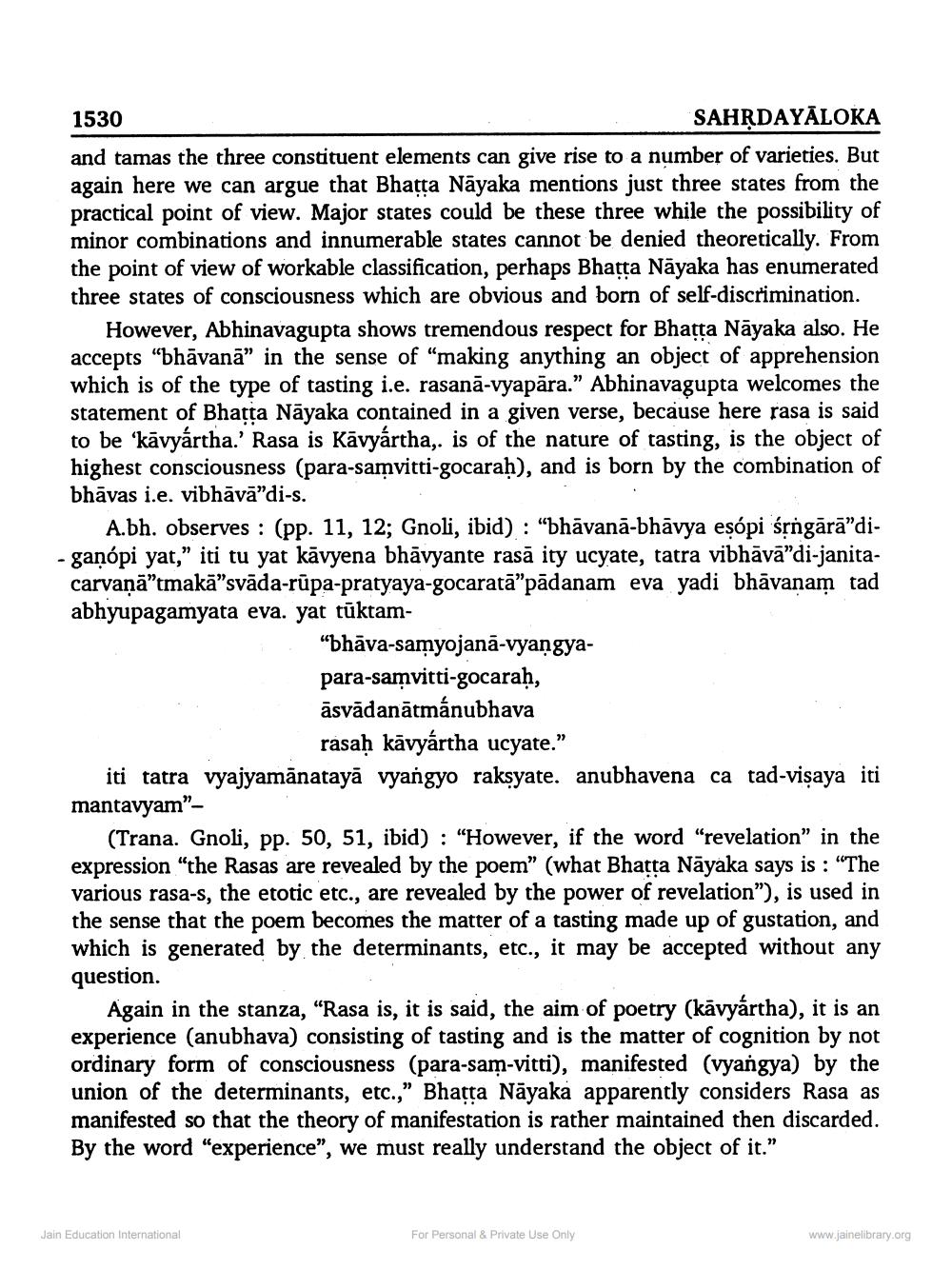________________
1530
SAHRDAYĀLOKA and tamas the three constituent elements can give rise to a number of varieties. But again here we can argue that Bhatta Nāyaka mentions just three states from the practical point of view. Major states could be these three while the possibility of minor combinations and innumerable states cannot be denied theoretically. From the point of view of workable classification, perhaps Bhatta Nāyaka has enumerated three states of consciousness which are obvious and born of self-discrimination.
However, Abhinavagupta shows tremendous respect for Bhatta Nayaka also. He accepts “bhāvanā” in the sense of “making anything an object of apprehension which is of the type of tasting i.e. rasanā-vyapära." Abhinavagupta welcomes the statement of Bhatta Nāyaka contained in a given verse, because here rasa is said to be ‘kāvyártha.' Rasa is Kāvyártha,. is of the nature of tasting, is the object of highest consciousness (para-samvitti-gocarah), and is born by the combination of bhāvas i.e. vibhāvā”di-s.
A.bh. observes : (pp. 11, 12; Gnoli, ibid) : “bhāvanā-bhāvya esopi śộngārā”di- ganópi yat," iti tu yat kavyena bhavyante rasā ity ucyate, tatra vibhāva"di-janitacarvaņā”tmakā”svāda-rūpa-pratyaya-gocaratā”pādanam eva yadi bhāvanam tad abhyupagamyata eva. yat tūktam
“bhāva-samyojanā-vyangyapara-samvitti-gocaraḥ, āsvādanātmánubhava
rasaḥ kāvyártha ucyate.” iti tatra vyajyamānatayā vyangyo raksyate. anubhavena ca tad-visaya iti mantavyam”
(Trana. Gnoli, pp. 50, 51, ibid) : "However, if the word “revelation” in the expression “the Rasas are revealed by the poem” (what Bhatta Nāyaka says is : “The various rasa-s, the etotic etc., are revealed by the power of revelation”), is used in the sense that the poem becomes the matter of a tasting made up of gustation, and which is generated by the determinants, etc., it may be accepted without any question.
Again in the stanza, “Rasa is, it is said, the aim of poetry (kävyártha), it is an experience (anubhava) consisting of tasting and is the matter of cognition by not ordinary form of consciousness (para-sam-vitti), manifested (vyangya) by the union of the determinants, etc.," Bhatta Nāyaka apparently considers Rasa as manifested so that the theory of manifestation is rather maintained then discarded. By the word "experience”, we must really understand the object of it."
Jain Education International
For Personal & Private Use Only
www.jainelibrary.org




